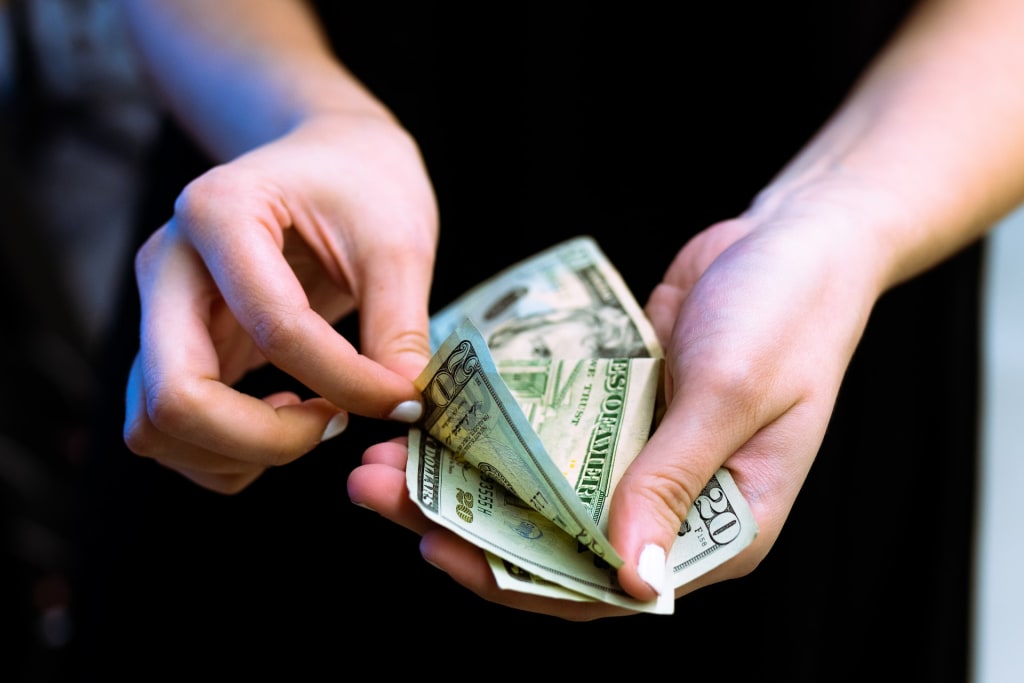Investing in Happiness: How to Spend Your Money for Maximum Joy
Discover the Science-Backed Ways to Use Your Money to Increase Your Happiness and Well-Being.

While everyone wants to be happy, not everyone is aware of how to do it. Despite the fact that evidence demonstrates that money alone cannot ensure pleasure, we frequently equate happiness with material items. In actuality, our entire well-being is significantly impacted by the way we spend our money. In this post, we'll examine the methods for maximizing our pleasure returns on investment that is supported by science.
1. Spend on Experiences, Not Things
It's normal to experience happiness after making a purchase of a new vehicle, outfit, or accessory. The joy brought on by worldly items, however, is fleeting. The novelty eventually fades, leaving us yearning for more. Contrarily, experiences bring about long-lasting satisfaction since they help us make memories that we will treasure forever.
According to studies, experiences are what provide individuals the most enjoyment, not material stuff. This is due to the fact that experiences promote fulfillment, personal development, and a sense of connection. For instance, going on a trip with your loved ones can improve your bond and help you make lifelong memories. The same may be said for taking a cooking class, going to a sporting event, or going to a concert.
It's not necessary to spend a lot of money on adventures. You can organize a weekend getaway, visit a brand-new eatery, or sign up for a neighborhood club that matches your interests. The secret is to make experiences a regular part of your life and to value them more highly than stuff.
2. Invest in Others
Spending money on others is another way to invest in happiness. According to research, investing in others can improve our own sense of well-being. This is true because helping others fosters feelings of sociability, empathy, and purpose.
According to one study, persons who spent money on others felt happier than those who spent it on themselves. Giving to others, according to the study, encourages a sense of social duty and generosity.
Many different things can be invested in. You can buy a friend a cup of coffee, volunteer at a nearby shelter, or make a charitable donation. The secret is to develop regular giving habits and look for opportunities to help others.
3. Prioritize Time Over Money
Time is a valuable resource in our fast-paced world. Many of us believe we don't have enough time to be with our loved ones or do the activities we enjoy. But according to a study, time rather than money is a greater indicator of happiness.
According to a survey, persons who value their time more than their money expressed greater levels of happiness and life satisfaction. This is so because time offers chances for encounters, interpersonal relationships, and personal development. Money, on the other hand, can only bring about fleeting pleasure and tangible belongings.
You don't have to give up your career or your obligations in order to invest in time. Making time for the things that are important to you simply means that. You can plan frequent date nights with your significant other, take the day off to go hiking, or just unwind with an hour of reading.
4. Buy More Small Pleasures
We frequently believe that having more money makes us happier. There is a limit to how much money may improve our well-being, according to a study. The marginal advantages of additional income decrease once our basic necessities are covered.
We might put our money into modest pleasures that provide us with daily moments of happiness rather than concentrating on gaining wealth. These might be as straightforward as buying flowers, trying a novel ice cream flavor, or playing your favorite music. We can cultivate a daily sense of joy and thankfulness by placing an emphasis on little joys.
Small joys shouldn't be neglected in favor of our long-term objectives. It simply means appreciating the small things in life and finding joy in the here and now.
5. Cultivate Gratitude
Yes, cultivating thankfulness is a crucial part of making happiness investments and getting the most satisfaction out of our money. Focusing on the positive parts of our lives and being grateful for what we have is the practice of gratitude.
According to research, being grateful can significantly improve our health. People who routinely express appreciation report higher levels of happiness, better physical health, and healthier relationships, according to studies. By encouraging resilience and positivity, thankfulness can also aid us in managing stress and hardship.
Keeping a gratitude notebook is one approach to practicing thankfulness. Make a list of three things every day for which you are grateful, and consider what makes each of them special. This straightforward technique can assist you in shifting your attention from what you lack to what you have and improve your general sense of well-being.
Gratitude can also be developed by showing people praise.
This might be as easy as sending a message of appreciation to a coworker or thanking a friend for their assistance. We may improve our relationships and foster a culture of compassion and thankfulness by showing others gratitude.
Practicing appreciation can lead us to spend money in more thoughtful and purposeful ways. We can avoid the trap of constant comparison and put our expenditures in perspective by focusing on the positive aspects of our lives and being appreciative of what we have. For instance, we can be grateful for the phone we currently have and spend money on experiences or gifts that make us and other people happy rather than purchasing the newest gadget because we feel like we need it to stay up with others.
It takes more than just building more money or tangible belongings to invest in happiness. It involves making deliberate decisions that put experiences, interpersonal relationships, personal development, and thankfulness first. We can increase the happiness we get from our spending and foster a sense of well-being that lasts beyond the short-term thrill of a new purchase by adhering to these science-backed practices.
Conclusion
Spending money on material things is simply one aspect of investing in pleasure. It involves making deliberate decisions that put experiences, interpersonal relationships, personal development, and thankfulness first.
We can deepen our social ties and make enduring memories by spending money on activities. By making an investment in our own personal development, we can acquire the abilities and skills that fulfill us and add to our feeling of purpose. Additionally, by practicing gratitude, we can change our attention from what we need to what we already have, thereby improving our general sense of well-being.
Therefore, the next time you're deciding how to spend your money, consider the long-term effects on your pleasure and well-being rather than just the short-term joy of a new purchase. To keep your spending in perspective, pick activities that will make you happy and improve your life, make investments in your own personal growth and development, and practice thankfulness.
It's never too late to begin if you want to invest in your happiness; it takes a lifetime. You may maximize the pleasure you derive from your spending and lead a more meaningful and rewarding life by implementing these techniques into your daily life. Never forget that how you choose to spend your money, not how much you have, makes all the difference.
About the Creator
Ahamed Thousif
🌟 Welcome to the realm of exploration, where communities come alive through the power of words! 📚✨ Join me as we embark on a journey to discover the vibrant tapestry of stories and Poems.
VISIT - "MY FOOD BLOG"






Comments
There are no comments for this story
Be the first to respond and start the conversation.